As New Jersey municipalities grapple with a housing shortage and prepare for the fourth round of affordable housing obligations, they need to find effective ways to encourage development, especially for projects that include affordable units. To help meet these needs, local governments have increasingly turned to innovative strategies, one of the most effective being the Payment in Lieu of Taxes (PILOT) program, an alternative tax payment program negotiated between a municipality and a property developer. The New Jersey Department of Community Affairs (DCA) reports a recent uptick in the use of PILOT agreements, with a total of 1,389 affordable housing developments governed by such agreements in 2024, compared to just 569 in 2020.
What is a PILOT?
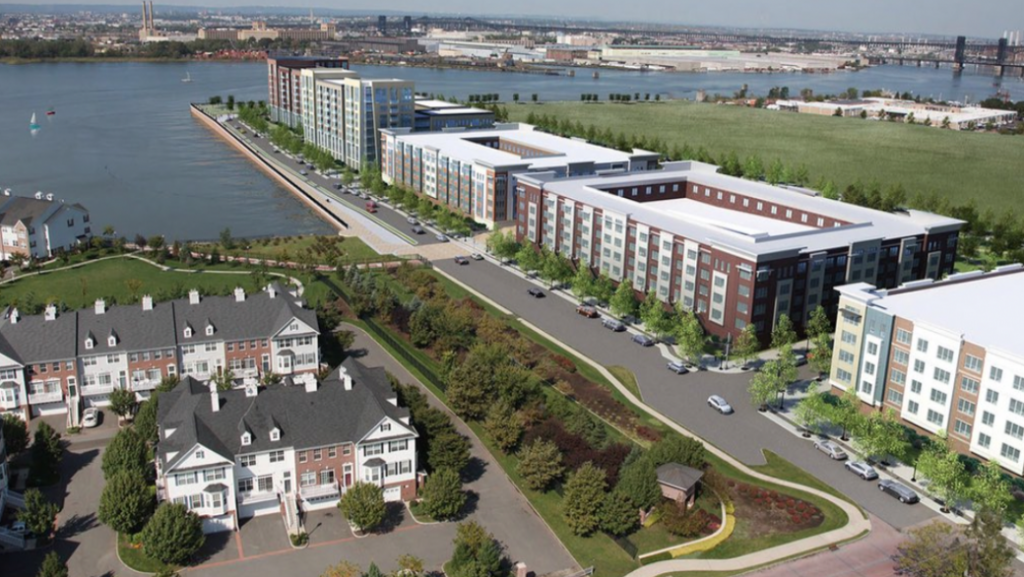
A PILOT agreement allows developers to receive a property tax abatement for a project if it meets the following conditions: (1) the redeveloped or rehabilitated property is in a predetermined redevelopment zone, (2) New Jersey has designated the developer as an Urban Renewal LLC and (3) the development would not have happened without the tax abatement. Instead of paying conventional property taxes, in a PILOT agreement, the property owner agrees to an annual service charge for a period that could last up to 30 years. Under the Long-Term Tax Exemption law, PILOTs can be either up to 15 percent of a project’s annual gross revenue or 2 percent of total project costs. Payments from the PILOT program are distributed to the municipality and the county, with the municipality collecting 95 percent of the revenue and the county receiving the remaining 5 percent. This differs from conventional tax distribution, where school districts are typically entitled by law to a greater share of the revenue. According to DCA, under conventional tax distributions, municipalities receive an average of 29.6 percent of the revenue, counties receive 17.6 percent, and school districts receive 52.7 percent.
New Jersey first established a PILOT program in 1961 with the Fox-Lance Law to help large cities like Newark and Jersey City maintain their tax base during a period of urban population decline. Under this first law, PILOT payments could be either 2 percent of total construction costs or 1.5 percent of annual revenue. However, the law was considered too favorable to developers and unfair to the municipalities, prompting New Jersey to pass the Long-Term Tax Exemption Law in 1991, as well as subsequent legislation to ensure that the PILOT program was mutually beneficial for developers and municipalities.
Benefits and Risks
PILOTs benefit developers by enabling them to receive property tax exemptions if their developments advance the goals of a municipality. When developing on vacant or underutilized land, especially in areas in need of redevelopment or revitalization, the increased property values that will result from the improvements and the ensuing taxes can make a project financially unviable, making the construction of affordable housing far less likely. The PILOT, whether calculated based on construction costs or annual gross revenue, often significantly reduces the necessary payments made by the property owner.

PILOT agreements allow municipalities to foster development in key areas, helping to advance goals like affordable housing construction and downtown revitalization. For municipalities, procuring affordable housing can be difficult as developers will often not be able to finance these projects without such incentives. Municipalities also benefit because PILOT developments on vacant or underutilized land generate a source of revenue that otherwise would not have been available. By enabling construction in underutilized areas, some municipalities have significantly increased overall revenue, allowing for residents to receive reduced property tax rates.
Despite the many positives that PILOTs can bring to municipalities, developers, and ultimately the users of the buildings constructed, municipalities entering into PILOT agreements must also be vigilant that the workings of such arrangements are properly documented and administered to ensure compliance. Property owners or developers may be tempted to identify ways to pay less money than required by the PILOT. Developers have used financial mechanisms to artificially reduce construction costs or revenue, making use of the stipulations in the Long-Term Tax Exemption Law that require PILOTs to be paid through annual gross revenue or total construction costs. For example, structuring a lease with an affiliated entity to underpay the value of the property or merging expenses of multiple projects to understate construction costs are two ways that unscrupulous developers can misrepresent their costs and undermine these agreements. Under a PILOT financial agreement, there are usually stipulations that the developer must conduct an annual audit; however, municipalities can also conduct their own annual audits on project costs, gross revenues, and annual financial operations. Yet some local governments do not have the capacity to conduct thorough examinations of their partners’ finances.
Recent Legislation to Address PILOT Oversight
In recent years, the New Jersey legislature has taken steps to expand the PILOT program and, importantly, to provide additional support to local governments that lack the capacity to fully examine real estate deals that incorporate PILOTs. In spring 2024, Gov. Phil Murphy signed A-3337/S-2312 into law, permitting PILOT agreements between municipalities and affordable housing projects that receive funding through the State Affordable Housing Trust Fund or municipal affordable housing trust funds. The measure effectively streamlines the negotiation process between developers and municipalities, and expands the opportunities for PILOT agreements.
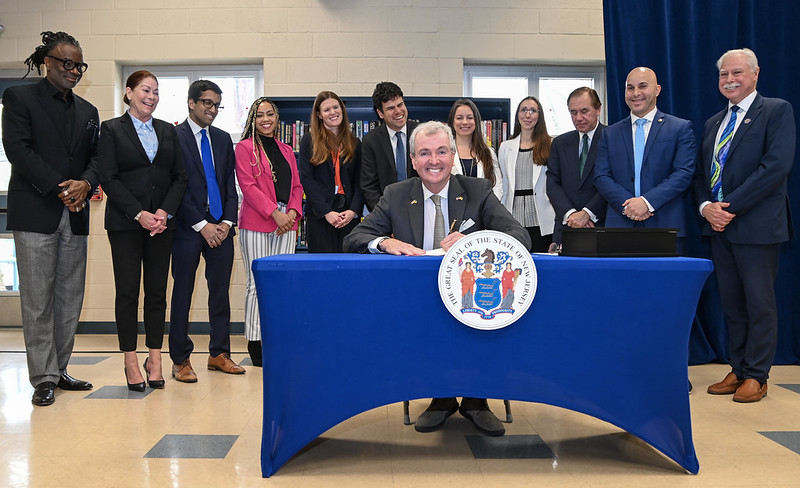
Additionally, on January 30, 2025, the New Jersey Senate passed a PILOT-focused bill, S-1403, which is now awaiting a decision from the Assembly. If enacted, the measure would require contractors working on projects that have received tax abatements, PILOT agreements, grants, or other public financial assistance to file payroll records with the New Jersey Department of Labor.
This pending legislation has the potential to benefit the PILOT program, though the New Jersey State League of Municipalities (NJSLM) had recommended that the Senate vote down the bill. The NJSLM argued that requiring contractors to file their payroll records would create an undue burden, leading to fewer PILOT developments over time. However, using state resources to monitor PILOT projects’ total construction would help municipalities that cannot effectively audit their PILOTs.
More recently, in May 2025, the Senate Community & Urban Affairs Committee advanced legislation, S-4069, requiring both municipal and independent cost-benefit analyses for PILOT agreements, detailing the financial impacts of the PILOT on the municipality, county, and school district. However, developments tied to affordable housing compliance would be exempt, and the bill now moves to the Senate Budget & Appropriations Committee.
Technical Assistance
Several state agencies provide resources and support to municipalities considering PILOT agreements.
Municipalities looking to understand financial forecasting of a PILOT project can consult the NJ Division of Local Government Services’ PILOT Financial Agreement Forecast (PFAF) analytical tool. This tool can be used to evaluate the net cost to the municipality for any PILOT project using data such as land value, expected property taxes, and annual gross revenue. After inputting the relevant information like project type, PILOT method, and municipality, the tool projects revenue for the PILOT over a 30-year span.
Additionally, the New Jersey Housing and Mortgage Finance Agency (HMFA) provides a model PILOT agreement and technical assistance to municipalities for PILOT projects that seek approval and funding through the HMFA. Due to the high volume of applicants for Low Income Housing Tax Credits, the HMFA grades applications through a points system. Projects that adhere to the HMFA model PILOT agreement of 6.28 percent annual gross revenue receive 5 points towards their application. Additionally, municipalities can consult with HMFA to understand PILOT program standards.
PILOTs
Municipalities have used PILOT agreements as a key tool to build affordable housing, revitalize target zones, support infrastructure improvements, and address the state’s housing shortage. Of the 1,389 affordable housing projects currently operating under PILOTs, most are in the state’s largest cities. For example, 663 affordable housing projects in Newark rely on PILOT agreements. Recently, other municipalities have also begun using PILOTs to support affordable housing and advance local goals.
Camden
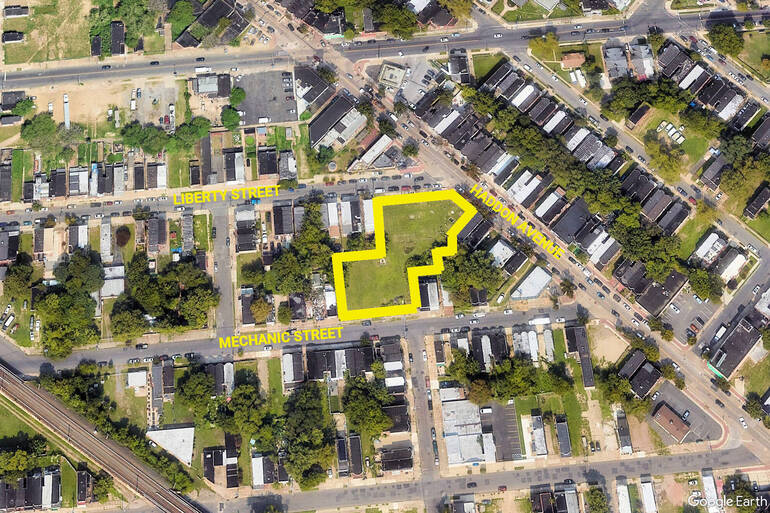
In August 2024, the Camden City Council approved a 51-unit all-affordable mixed-use development and granted a 30-year PILOT agreement for the project. Parkside Business & Community in Partnership and Conifer Realty will develop the project, which will receive a PILOT set at 5 percent of its annual revenue—lower than the 6.28 percent recommended by HMFA under its model PILOT agreement for affordable housing projects. Based on projected revenue, Camden will collect around $36,000 per year from the project while advancing its affordable housing goals.
Linden
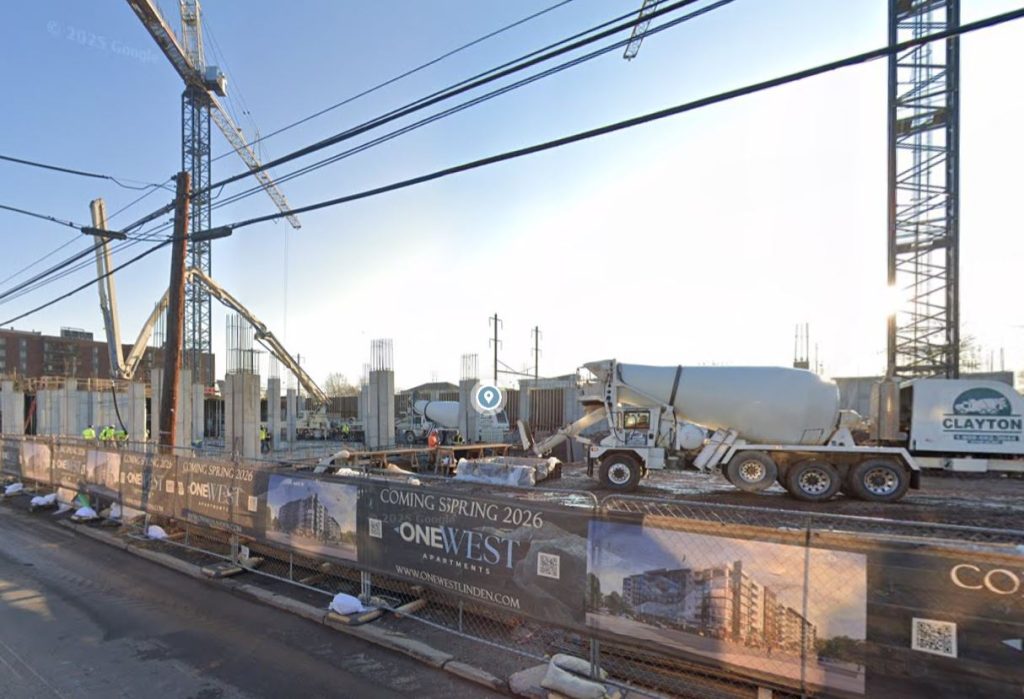
In the summer of 2024, MORDEVCO broke ground on OneWest Apartments, a mixed-use, transit-oriented development located near the Linden Station on the NJ TRANSIT Northeast Corridor and North Jersey Coast lines. The development features 334 rental units and 13,000 sq. ft. of ground floor retail. Although the development does not contain any affordable housing, the developer and the City agreed to a 30-year PILOT agreement at 11 percent annual gross revenue to support other goals, such as redeveloping a declining retail center, constructing dense transit-oriented housing, and spurring downtown growth.
Princeton
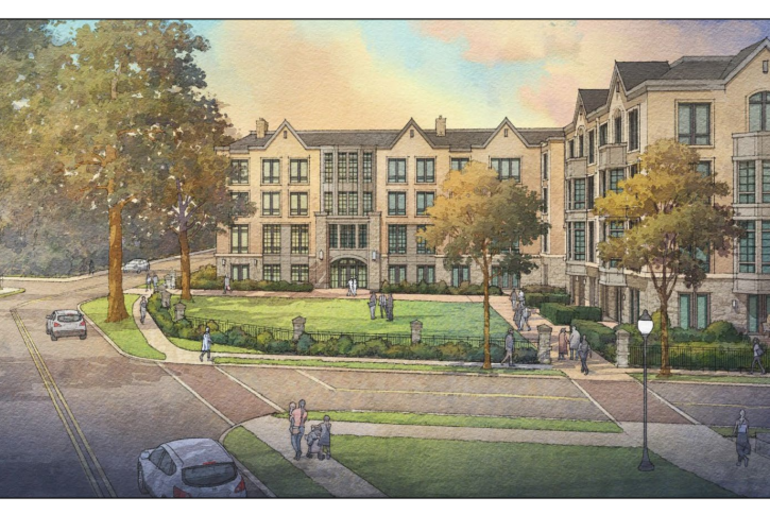
The Princeton Municipal Council approved a PILOT agreement to HP 108 Stockton Urban Renewal in December 2024 to redevelop a Princeton Theological Seminary site. The project will include 240 units, with 48 designated as affordable housing, contributing to Princeton’s fourth round affordable housing obligation of 276 units. The developer stated even with the PILOT—negotiated to 12 percent of annual gross revenue—margins would be very thin to make the project profitable. However, the decision sparked controversy. Princeton’s Board of Education urged the Council to share PILOT funds with the school district, arguing that without additional support, the new development would strain the system. A former councilmember also criticized the agreement, claiming it would increase the tax burden on current residents. After approving the plan, the Council stated that it would collaborate with the school district on how funds will be spent.
Somerville
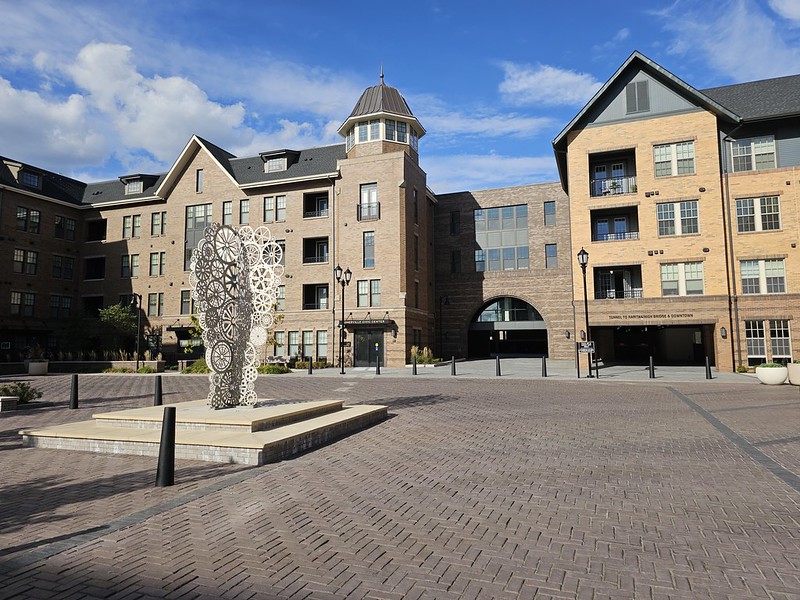
Critics often argue that PILOT agreements burden taxpayers, but Somerville demonstrates how they can help moderate property tax increases by enhancing municipal revenues. As part of its early 2010s development plan, Somerville granted PILOTs to several developers in support of the redevelopment of vacant land in its downtown. These agreements supported a 374-unit apartment complex built by Avalon, the 156-unit PulteGroup townhome community on a former landfill adjacent to Somerville Station, and the 117-unit Cobalt apartments on a remediated junkyard site. These three developments now generate a total of $1.29 million in annual PILOT revenue by utilizing land that sat vacant for decades. Borough officials estimate that PILOT agreements will bring in $138 million in revenue over the next 25 years, which enabled the Borough to increase local revenue by 24.35 percent from 2022 to 2023, despite only raising the local property tax rate by 0.62 percent.
Westfield

In 2023 Westfield entered into a 30-year PILOT agreement with Streetworks Development to support a major downtown revitalization project. The plan calls for the transformation of 14 acres of vacant land and commuter parking into a mixed-use district with office, residential, and retail space connected by pedestrian-friendly greenways. The agreement is expected to generate $214 million in PILOT revenue, with $54 million in redevelopment bonds authorized for traffic improvements, green space, and pedestrian and bicycle infrastructure. Anchored by Westfield Station on the Raritan Valley Line, the project aims to establish a walkable, transit-oriented district aligned with the town’s long-term development goals.
Jersey City
Jersey City has relied heavily on PILOT agreements to support new development, generating $103 million in payments in 2023. However, questions remain about whether these agreements have ultimately benefited or burdened the municipality, especially with regards to the school district. According to Jersey City’s User Friendly Budget 2023, developments under PILOT agreements would have been liable for $256 million in property taxes if taxed at the standard 2021 rate. Furthermore, after New Jersey passed S-2 in 2018—which reformed state education funding to be based on assessed property values—state aid to Jersey City schools dropped from 75 percent of the district’s budget in 2018 to just 16 percent in 2024. Since many developments in Jersey City operate under PILOT agreements, which do not contribute to property taxes, increases in assessed property value often do not directly translate into more revenue for schools. Between 2018 and 2024, Jersey City increased property taxes by nearly 50 percent, in part to help meet school funding obligations. While PILOTs provide a new source of revenue, they generate far less than traditional taxes and are not legally required to contribute to the school system at a time when such funding has been consistently cut. A legal agreement between the Board of Education and Jersey City establishing an allotment for schools in all future PILOTs may provide a solution to this problem.
PILOTs in Other States
PILOT agreements are used nationwide to spur development and affordable housing, though they often face public scrutiny over perceived inequity. Each state structures its PILOT programs differently. In New York, the use of PILOTs began in the 1980s in response to declining federal support for cities and the erosion of the urban tax base caused by suburban flight. Today New York uses PILOTs both to attract new investment and to retain existing businesses, with agreements typically negotiated between private entities and public agencies such as the NYC Economic Development Corporation. These agreements often result in payments lower than conventional property taxes.

As in New Jersey, debate continues over whether PILOTs in New York serve the broader public interest. While they help make projects like affordable housing projects financially viable—such as recent developments in Watertown and Saratoga Springs—they can also allow highly profitable entities to avoid substantial tax obligations. Madison Square Garden, for example, has not paid property taxes since securing a PILOT in the early 1980s, resulting in an estimated $1 billion in forgone tax revenue over 43 years.
Boston offers a different model, primarily using PILOTs to collect voluntary contributions from tax-exempt entities like hospitals, universities, and cultural institutions. With 52 percent of Boston’s property classified as tax-exempt, the city relies on these contributions to offset the resulting pressure on residential tax payers. However, payments from institutions frequently fall short of expectations: in 2024, Boston requested nearly $129 million in PILOT payments but received just $36 million in cash contributions.
In 2023, Boston launched a development-focused Office-to-Residential Conversion PILOT Program, offering tax abatements of up to 75 percent for 30 years to developers who convert downtown office buildings into housing. During the first year, the program approved nine projects, resulting in 412 new residential units, with 20 percent affordable. Citing this early success, Massachusetts Governor Maura Healey allocated an additional $15 million to extend the program through December 2025.
While New York, Massachusetts, and New Jersey have used PILOTs to spur development and expand affordable housing, these programs continue to face scrutiny due to concerns about fairness and the extent to which reduced tax obligations benefit the public versus private developers.
Takeaways
PILOT agreements offer a means for developers to finance projects that might not otherwise be feasible and for municipalities to encourage development in targeted areas. Across New Jersey, these agreements have supported the development of affordable housing, transit-oriented development projects, and downtown revitalization. PILOTs can also help communities make productive use of land that has long sat vacant or underutilized—generating revenue that supports services and residents. While concerns remain in some communities—particularly around potential tax burdens, school districts’ impacts, and reduced financial contributions from developers—better oversight, clearer policies, and community engagement can help ensure that PILOT agreements deliver broad, lasting benefits.
Resources
51 Apartments, Commercial Space Approved for Haddon Avenue Lot | TAPinto Camden
A Closer Look at Jersey City’s School Tax Rate | Civic Parent
Adopted Budget: 2023 | The Borough of Somerville
Benefits and Pitfalls of PILOT Agreements for NJ Municipalities | PKFOD
Changes to School Aid Were Supposed to Ease Property Taxes. Here’s What Really Happened | NJ Spotlight News
Council Approves PILOT for Princeton Seminary Site | Patch
End the Request: It’s Time for Boston’s Biggest Landowners to Pay Their Fair Share | Boston University
Governor Hochul Announces Start of Construction on 98-Unit Affordable Housing Development in Saratoga Springs | Homes and Community Renewal
Governor Murphy Signs Landmark Affordable Housing Legislation | Office of Governor Phil Murphy
Healey Puts $15 Million Behind Boston’s Office-to-Housing Push | WBUR
Here’s How Much Somerville Taxpayers Are Saving Through Tax Breaks to Developers | MyCentralJersey
Jersey City Council Approves 30-year PILOT for Bayfront with 35% Affordable Housing | Hudson County View
MORDEVCO Breaks Ground on 334-Unit Rental Project at Key Site in Downtown Linden | RE-NJ
Municipal Tax Abatement Handbook | NJ Department of Community Affairs
Municipal Tax Abatement Toolkit | NJ Department of Community Affairs
Municipal User Friendly Budget (2023) | The City of Jersey City
New Jersey PILOT Programs | Town of Newton, NJ
Office to Residential Conversion Program | City of Boston
Payment in Lieu of Tax (PILOT) Program | City of Boston
PILOT and Affordable Housing in Hopewell Township: The Facts | Township of Hopewell, NJ
Predicting PILOT Revenue Can Be Tricky, Bloomfield Official Says | Patch
Property Tax Information | NJ Department of Community Affairs
Redevelopment Plan for Princeton Theological Seminary Properties, July 1, 2024
Senate Considering Bill Subjecting PILOTs to Payroll Reporting | NJLM
Senate, No. 2312 | New Jersey Legislature
The Tax Zombies of New York | Crain’s New York Business
Watertown City Council Approves PILOT, And Tables Pride Flag Raising | WWNY
Westfield Pushes Ahead With Sweeping Downtown Redevelopment, Despite Opposition | RE-NJ

